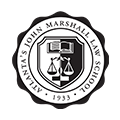Beverly L. Cohen
Private Practice
Beverly Cohen has been representing clients in divorce and family law matters for over 20 years. She has a reputation for providing her clients with the highest level of representation in the most cost-effective manner. Beverly is dedicated to creating an environment of trust and confidence between her clients and herself. She prides herself on maintaining communication with her clients, promptly returning phone calls, responding to emails, and reasonable billing practices. Her knowledge, experience, and dedication to her clients has resulted in a high level of client satisfaction.
At the time she began practicing law, Beverly also began teaching a seminar she created, "What You Need to Know Before You File for Divorce." The seminar is for anyone who is contemplating filing for divorce but does not know what to expect. In one 3 hour seminar, Beverly covers over 20 topics related to divorce including alimony, custody, child support, property division, and temporary hearings as well as both legal and practical ways to protect yourself, your children, and your property. The seminar is currently taught at the Marietta Community School in Cobb County. www.mariettacommunityschool.com
In addition to representing clients in family law matters, Beverly's practice includes appeals.
Web Site: www.GeorgiaDivorceSeminar.com
- Atlanta's John Marshall Law School
- Law Degree
-

- Attorney
- Private Practice
- - Current
- Georgia State Bar
- Member
- - Current
-

- Georgia
-

- Appeals & Appellate
- Civil Appeals, Federal Appeals
- Divorce
- Collaborative Law, Contested Divorce, Military Divorce, Property Division, Same Sex Divorce, Spousal Support & Alimony, Uncontested Divorce
- Family Law
- Adoption, Child Custody, Child Support, Father's Rights, Guardianship & Conservatorship, Paternity, Prenups & Marital Agreements, Restraining Orders, Same Sex Family Law
- Q. MY EX AND I HAVE TWO KIDS WE RECENTLY FOUND OUT HE WASNT THE FATHER DID DNA HE HAS BEEN TAKIN CARE OF THEM FOR 10 YRS
- A: What is the question?
- Q. Do we need to get a lawyer
- A: Your situation sounds complicated. Other issues may be involved that you have not even mentioned. The best advice would be to hire an attorney who can deal with all of the issues presented by the situation.
- Q. What is code 53-12-261
- A: CODE OF GEORGIA
Title 53. WILLS, TRUSTS, AND ADMINISTRATION OF ESTATES
Chapter 12. REVISED GEORGIA TRUST CODE OF 2010
Article 13. ADMINISTRATION OF TRUST
Part 2. INCORPORATION OF FIDUCIARY POWERS BY REFERENCE
Current through 2013 legislative session
§ 53-12-261. "Fiduciary" Defined; Powers That May Be Incorporated by Reference
(a) As used in this Code section, the term "fiduciary" means the one or more personal representatives of the estate of a decedent or the one or more trustees of a testamentary or inter vivos trust, whichever in a particular case is appropriate.
(b) A trustee of an express trust, without court authorization, shall be authorized: (1) To sell, exchange, ... Read More
- Website
- Website

